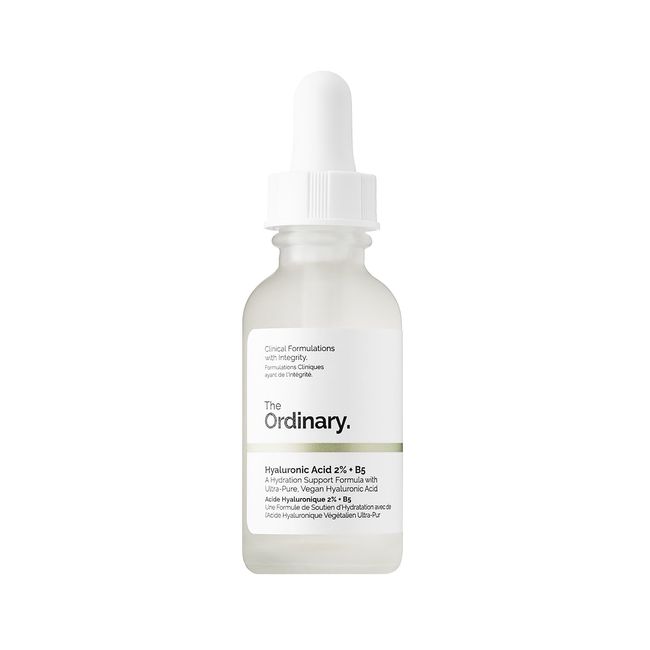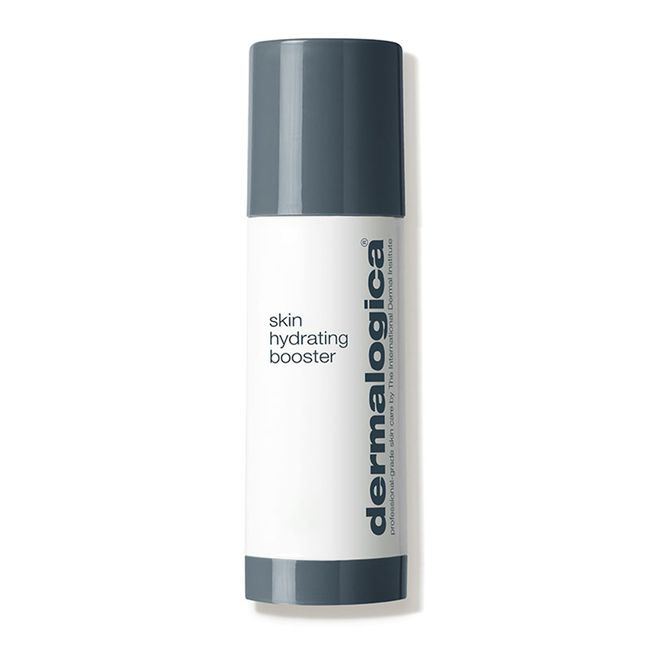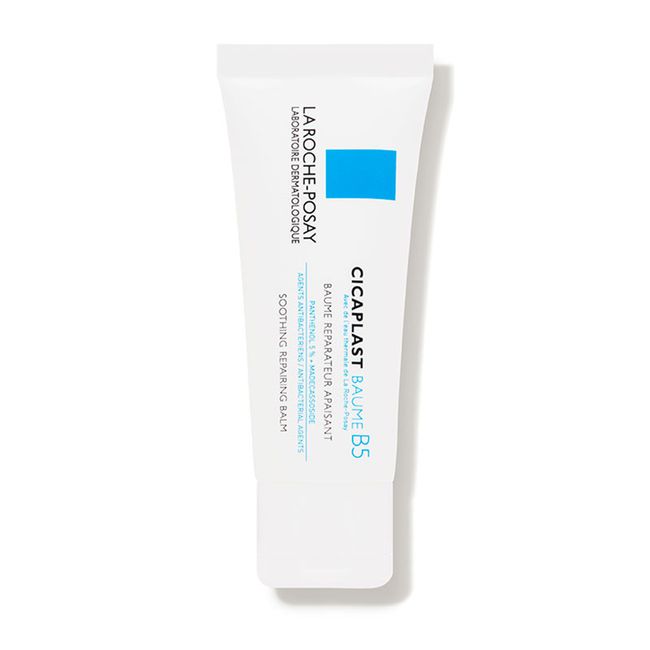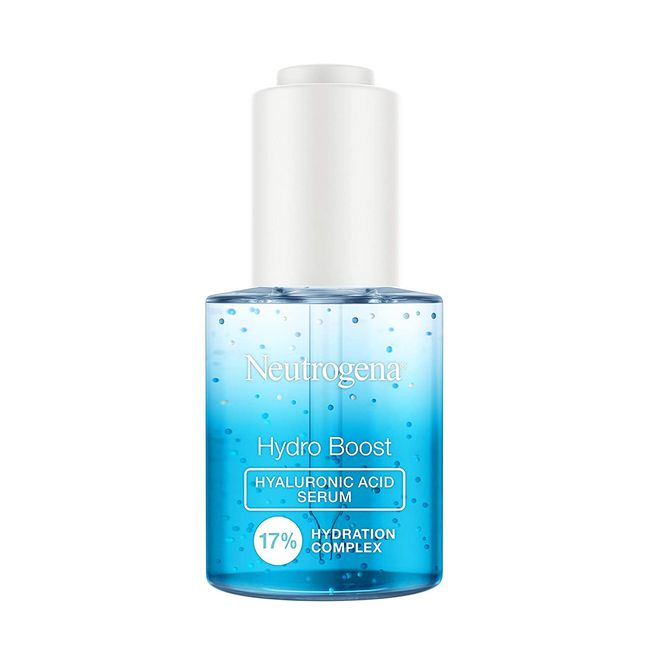We independently research, test, review, and recommend the best
products—learn more about
our process. If you buy something through our links, we may earn a commission.

When you think about anti-acne skin-care, tried and true ingredients such as salicylic acid and benzoyl peroxide probably come to mind. But you should also be aware of one rising star in the world of acne-fighting ingredients. Pantothenic acid, also known as vitamin B5, has garnered buzz for its hydrating and anti-inflammatory properties and can be found in the formulas of countless skin-care products. While it might not be dermatologists’ first line of defense against breakouts and blemishes (yet!), some studies suggest that pantothenic acid could reduce acne in addition to other skin benefits. Here’s what you need to know about pantothenic acid for acne or otherwise.
What is pantothenic acid?
Pantothenic acid is a water-soluble member of the vitamin B family, meaning that it dissolves in water, and if you consume an excess of what your body needs, it will just get removed through your urine. Pantothenic acid occurs naturally in your cells and tissues, says Beverly Hills-based board-certified dermatologist Tess Mauricio, M.D. Specifically, it’s present in coenzyme A, a compound that plays a role in regulating the skin barrier, according to New York-based board-certified cosmetic dermatologist Y. Claire Chang, M.D. In other words, pantothenic acid can aid the skin barrier in its role of keeping moisture in and harmful elements such as pathogens out. Note: In topical skin-care products, you’ll see “panthenol” rather than “pantothenic acid” listed in the ingredients. Also a form a vitamin B5, panthenol is a substance that your body converts to pantothenic acid, explains Dr. Mauricio.
What are the benefits of pantothenic acid?
Internally, pantothenic acid plays a role in breaking down fats in the body, so researchers have studied the potential of pantothenic acid supplements to reduce cholesterol levels in people with hyperlipidemia (aka high cholesterol), according to the National Institutes of Health (NIH). Pantothenic acid supplements might also be useful for other reasons, including preventing arthritis or allergies, but more research is needed to prove a link to these benefits, according to the Mayo Clinic.
Studies suggest that pantothenic acid’s role in topical beauty products may be linked to its anti-inflammatory properties and that it can also boost the skin’s softness, thanks to moisturizing properties. Plus, it’s often incorporated in hair and nail products to prevent dry and/or frizzy strands and dry, peeling nails, thanks to its moisturizing benefits.
Pantothenic acid has also emerged as a potential acne fighter. A small clinical study in 2014 showed that taking oral supplements containing pantothenic acid (along with other ingredients) reduced the participants’ number of blemishes after 12 weeks of taking the supplements twice a day. “Though the exact mechanism is unclear, [pantothenic acid’s anti-acne benefits] may be due to its anti-inflammatory and skin softening properties,” says Dr. Chang. Inflammation causes skin’s oil glands to become more active, allowing acne-causing skin bacteria and yeast to thrive. (
Note that some studies indicate that high dosages of ingested pantothenic acid may cause stomach upset and diarrhea, so you should always consult your doctor before starting any oral supplement and should follow the recommended dosage.
Bottom line: If you’re intrigued by pantothenic acid for acne, you should feel free to try supplements with the okay from your doctor. If not, you can stick to the tried and true drugstore acne products.
The Best Skin-Care Products with Pantothenic Acid
While you wait for the pros to deliberate on the pantothenic acid acne debate, you can get a jump on utilizing panthenol for its anti-inflammatory and moisturizing effects. Here are some derm-approved options with panthenol that you can add to your routine right now.
Aveeno Baby Eczema Therapy Moisturizing Cream

Dr. Chang is a fan of Aveeno Baby's Eczema Therapy Moisturizing Cream. The rich body cream is a perfect choice for those with dry, itchy, or irritated skin. "It is well-formulated with colloidal oatmeal, panthenol, glycerin, and ceramides to hydrate and nourish the skin," says Dr. Chang.
Buy It: Aveeno Baby Eczema Therapy Moisturizing Cream, $12, amazon.com
The Ordinary Hyaluronic Acid 2% B5

The Ordinary Hyaluronic Acid 2% B5 serum is one of Dr. Chang's top picks. It has a combines hyaluronic acid and panthenol and helps to hydrate and soften skin, she says.
Buy It: The Ordinary Hyaluronic Acid 2% B5, $7, sephora.com
Dermalogica Skin Hydrating Booster

Dermalogica Skin Hydrating Booster is a winner, according to Dr. Chang. "It helps revitalize and nourish dry skin with a powerful blend of hyaluronic acid, panthenol, glycolipids, and algae extract," she explains.
Buy It: Dermalogica Skin Hydrating Booster, $64, dermstore.com
La Roche-Posay Cicaplast Baume B5 Balm

La Roche-Posay's Cicaplast Baume B5 Balm is a powerhouse hydrator for your hands and body. "It is a great soothing balm for dry, irritated skin, formulated with a combination of panthenol, shea butter, glycerin, and La Roche-Posay Thermal Spring Water," says Dr. Chang.
Buy It: La Roche-Posay Cicaplast Baume B5 Balm, $15, dermstore.com
Neutrogena Hydro Boost Hyaluronic Acid Serum

Dr. Chang recommends Neutrogena's Hydro Boost Hyaluronic Acid Serum since it "quenches the skin with a combination of panthenol, hyaluronic acid, and glycerin." Suitable for all skin types, the ultra-lightweight serum promises to keep your skin hydrated for 24 hours.
Buy It: Neutrogena Hydro Boost Hyaluronic Acid Serum, $18, amazon.com



































